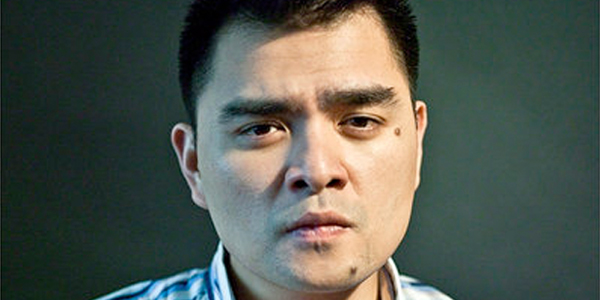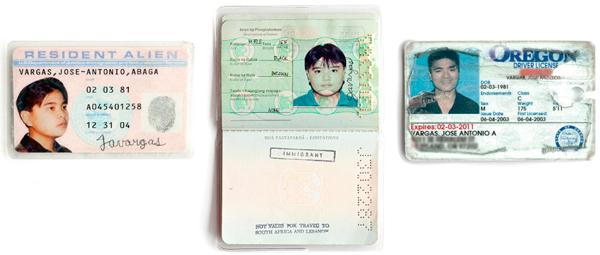 A while back, Jeff blogged about Jose Antonio Vargas, a remarkable person and prolific writer/journalist who immigrated from the Philippines. He worked hard but tried to stay under the radar when it came to pursuing his dreams, particularly his education and vocation. Still, after studying at San Francisco State University and writing for a couple of newspapers he found himself at the Washington Post where he earned “a share of a Pulitzer writing for the Washington Post on the Virginia Tech massacre.” Among other impressive projects, in 2008, he covered the Presidential elections.
A while back, Jeff blogged about Jose Antonio Vargas, a remarkable person and prolific writer/journalist who immigrated from the Philippines. He worked hard but tried to stay under the radar when it came to pursuing his dreams, particularly his education and vocation. Still, after studying at San Francisco State University and writing for a couple of newspapers he found himself at the Washington Post where he earned “a share of a Pulitzer writing for the Washington Post on the Virginia Tech massacre.” Among other impressive projects, in 2008, he covered the Presidential elections.
Fast forward to the present – a surprising revelation about this Asian American journalist: He is an undocumented immigrant. He recently wrote an incredible piece where he discloses his life story in great detail including his current status in this country. Apparently, the Washington Post was slated to run the article but passed, so it ended up at the very last minute at the New York Times, as blogged about by Chris Suellentrop.
I am struck by how this story puts flesh and blood onto the DREAM Act. There are millions of people in this country who have been caught by a system that is unfairly denying them entrance in a country in which they are already hard-working, positively-contributing members – Vargas clearly being a compelling example of someone caught in this difficult contradiction: From his entrance into this country as a 12-year old without his immediate family to trying to get a driver’s license so he could simply have an identity and find honest employment to reluctantly (for fear of being found out) attending college to paying federal and state taxes. Sometimes, it’s easy to get caught up in the statistics and politics of this issue – debating definitions of citizenship, etc. – but to hear a journey like Vargas’ makes it about so much more. The gray areas of these life situations demand more than the terrible immigration legislation in place right now. His story challenges us to consider the point of the current immigration system, and how we need to address the individual lives of those who came here without documents.
 It’s probably a dangerous venture, and people (including me) may wonder why Vargas is sharing all this right now. But, he offers:
It’s probably a dangerous venture, and people (including me) may wonder why Vargas is sharing all this right now. But, he offers:
…I’ve decided to come forward, own up to what I’ve done, and tell my story to the best of my recollection. I’ve reached out to former bosses and employers and apologized for misleading them — a mix of humiliation and liberation coming with each disclosure…I don’t know what the consequences will be of telling my story.
I do know that I am grateful to my grandparents, my Lolo and Lola, for giving me the chance for a better life. I’m also grateful to my other family — the support network I found here in America — for encouraging me to pursue my dreams.
It’s clear that his life here wasn’t easy, and yet, it’s his honesty and genuine gratitude that compels me. It’ll be interesting to see how this story pans out for him, of course, I wish him the best. Most of all, I hope that his dreams for citizenship – for this country to, at the very least, validate and legitimize his place in this world – become real.
(h/t: Isaac K.)








